“The film is silly and stupid. It makes the Senate look like a bunch of crooks and is a grotesque distortion of the Senate, as grotesque as anything ever seen. It showed the Senate as the biggest aggregation of nincompoops on record!”
~Alben W. Barkley (D-KY)
Senate Majority Leader and future Vice President
Reacting to ‘Mr. Smith Goes To Washington’
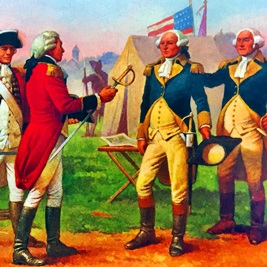
1781 – British General Charles Lord Cornwallis began negotiations to surrender his army after the Siege of Yorktown.
Gen. George Washington had ordered Marquis de Lafayette and an American army of 5,000 troops to block Cornwallis’ escape from Yorktown by land while the French naval fleet blocked the British escape by sea.
By September 28, Washington had completely encircled Cornwallis and Yorktown with the combined forces of Continental and French troops. After three weeks of non-stop bombardment, both day and night, from cannon and artillery, Cornwallis was left with no options.
Although the war persisted on the high seas and in other theaters, the Patriot victory at Yorktown ended fighting in the American colonies. Peace negotiations began in 1782, and on September 3, 1783, the Treaty of Paris was signed, formally recognizing the United States as a free and independent nation after eight years of war.
Surrender Factoid: At the formal surrender ceremony on October 19, General Cornwallis refused to attend, feigning illness. He sent his second in command, General Charles O’Hara, to surrender his sword to George Washington.
At the ceremony, O’Hara tried to give the sword to French General, Rochambeau, but he refused it and directed him to General Washington.
As O’Hara was Cornwallis’ second-in-command, Washington refused to honor this breach of protocol and, as shown above, he directed O’Hara to surrender the sword to his own second, General Benjamin Lincoln.
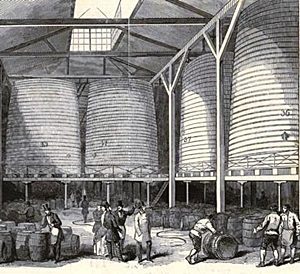
1814 – Eight people died in the London Beer Flood.
The mishap took place at Meux & Co’s Horse Shoe Brewery when one of the 22-foot-tall wooden vats burst. The pressure destroyed another massive barrel, and nearly 350,000 gallons of beer were released.
The resulting 15-foot wave destroyed the back wall of the brewery and swept into an area of dwellings known as the St. Giles rookery.
Eight people were killed, five of them attendees at a wake being held by an Irish family for a two-year-old boy.
As a result of the accident, large wooden tanks were phased out across the brewing industry and replaced with lined concrete vessels.
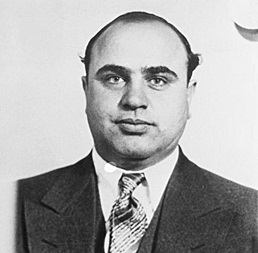
1931 – Al Capone was convicted of income tax evasion and sentenced to 11 years in prison.
Untouchables Factoid: Forget much of what you saw in the Kevin Costner version of The Untouchables, including the manner in which Capone was convicted for tax evasion. Nope, it wasn’t quite that simple.
Furthermore, by the time Capone was sent to the Atlanta Penitentiary in May 1932, he was far from the tough guy portrayed by Robert De Niro in the film.
He was officially diagnosed with syphilis and gonorrhea and was seen as a weak personality, so out of his depth dealing with bullying fellow inmates that there was a genuine fear that Capone would have a breakdown.

1933 – German-born theoretical physicist Albert Einstein fled to America.
While he was visiting the United States in early 1933, the appointment of Adolf Hitler as chancellor took effect and the Jewish theoretical physicist decided he would not return to his home in Germany where he had been a professor at the Berlin Academy of Sciences.
When he and his wife Elsa returned by ship to Belgium in March 1933, they discovered their cottage had been raided. Einstein turned in his passport to the German consulate and formally renounced his German citizenship.
By the summer, Einstein learned that his name was on a list of assassination targets.
He resided in Belgium for a short time and then briefly moved to England.
On October 17, he returned to the U.S. and took a position at the Institute for Advanced Study at Princeton in New Jersey. The Princeton agreement required he stay for six months.
He became an American citizen in 1940 … and his affiliation with the Institute for Advanced Study would last until his death in 1955.
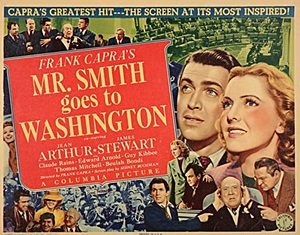
1939 – Mr. Smith Goes To Washington premiered in Constitution Hall in Washington, D.C.
Directed by Frank Capra and starring James Stewart, Claude Rains, and Jean Arthur, the movie was controversial when it was first released – politicians despised it – but successful at the box office, and it made Stewart a major star.
Although it is considered to be one of the greatest films of all time (and one of my personal favorites), the film was nominated for eleven Academy Awards, but only won for Best Original Story.
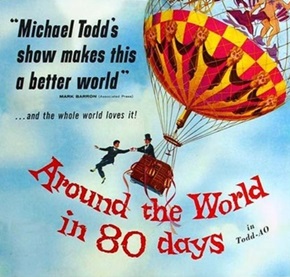
1956 – Around the World in 80 Days premiered at the Rivoli Theater in New York City.
Based on the book by Jules Verne and produced by Mike Todd, the film starred David Niven and Cantinflas, but more than 40 famous performers made cameo appearances, including Marlene Dietrich, Ronald Colman, George Raft, Charles Boyer, Peter Lorre, Red Skelton, Edward R. Murrow, Sir John Gielgud, and Frank Sinatra.
The film won 5 Academy Awards, including Best Picture.
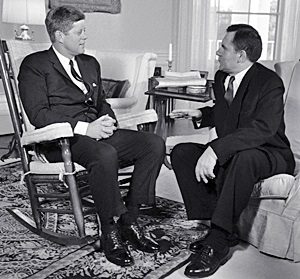
1962 – The Joint Chiefs of Staff continued to press President John F. Kennedy for a full-scale invasion of Cuba, explaining that the Russian missiles would seriously alter the military balance.
Kennedy was reminded that he had explicitly promised the American people less than a month before the crisis that “if Cuba should possess a capacity to carry out offensive actions against the United States… the United States would act.”
On October 18, Kennedy met with Soviet Minister of Foreign Affairs, Andrei Gromyko (shown above), who claimed the weapons were for defensive purposes only.
Not wanting to expose what he already knew and to avoid panicking the American public, Kennedy did not reveal that he was already aware of the missile buildup.
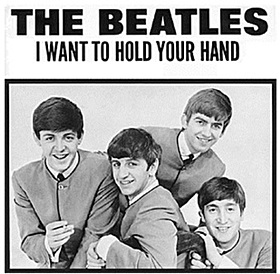
1963 – The Beatles recorded I Want To Hold Your Hand at EMI Studios #2 in London.
It was the first Beatles record to be made using four-track equipment and would become their first #1 hit in the U.S.
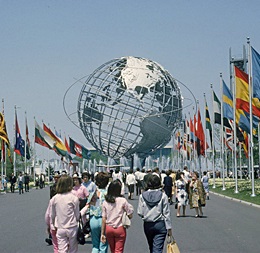
1965 – Following a two-year run that saw more than 51 million people walk through its gates, the New York World’s Fair closed its doors.
With a theme of “Peace Through Understanding,” the fair was a showcase for science and technology.
Many of the structures erected for the fair were torn down once it closed, but The Unisphere – 140 feet high and 120 feet in diameter – still stands.
Fun Factoid: The globe’s three rings were meant to evoke the first NASA satellites to orbit the earth.

1973 – Arab oil-producing nations announced they would cut oil exports to the United States and other nations that provided military aid to Israel in the Yom Kippur War; the result was a total embargo that lasted until March 1974.
In October 1973, OPEC ministers were meeting in Vienna when Egypt and Syria (non-OPEC nations) launched a joint attack on Israel. After initial losses in the so-called Yom Kippur War, Israel began beating back the Arab gains with the help of a U.S. airlift of arms and other military assistance from the Netherlands and Denmark.
By October 17, the tide had turned decisively against Egypt and Syria, and OPEC decided to use oil price increases as a political weapon against Israel and its allies.
Israel, as expected, refused to withdraw from the occupied territories, and the price of oil increased by 70 percent.
At OPEC’s Tehran conference in December, oil prices were raised another 130 percent, and a total oil embargo was imposed on the United States, the Netherlands, and Denmark.
Eventually, the price of oil quadrupled, causing a major energy crisis in the United States and Europe that included price gouging, gas shortages, and rationing.
In March 1974, the embargo against the United States was lifted after U.S. Secretary of State Henry Kissinger succeeded in negotiating a military disengagement agreement between Syria and Israel.
Oil prices, however, remained considerably higher than their mid-1973 level. OPEC cut production several more times in the 1970s, and by 1980 the price of crude oil was 10 times what it had been in 1973.
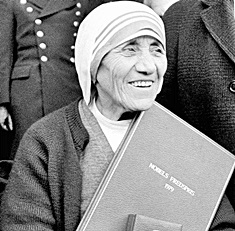
1979 – Mother Teresa of India was awarded the Nobel Peace Prize “for work undertaken in the struggle to overcome poverty and distress, which also constitutes a threat to peace.”
She refused the conventional ceremonial banquet for laureates, asking that its $192,000 cost be given to the poor in India and saying that earthly rewards were important only if they helped her to help the needy of the world.
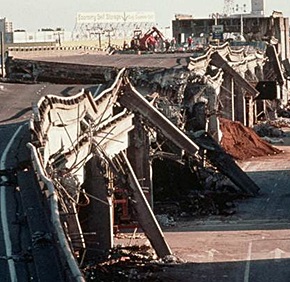
1989 – The 6.9 magnitude Loma Prieta earthquake shook the San Francisco Bay Area.
The earthquake was centered approximately 10 miles northeast of Santa Cruz on a section of the San Andreas Fault System and was responsible for 63 deaths and 3,757 injuries.
Because it happened during a national live broadcast of the 1989 World Series, it is sometimes referred to as the “World Series earthquake.”
Rush-hour traffic on the Bay Area freeways was lighter than normal because the game, being played at Candlestick Park in San Francisco, was about to begin, and this may have prevented a larger loss of life, as several of the Bay Area’s major transportation structures suffered catastrophic failures.
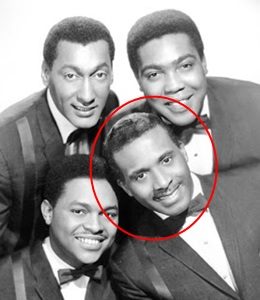
2008 – Singer Levi Stubbs, lead vocalist of the Four Tops, died after a long series of illnesses – including cancer and a stroke – at the age of 72.
Arguably the most powerful voice in Motown’s storied history, Stubbs baritone gave voice to enduring hits such as Baby, I Need Your Loving, I Can’t Help Myself (Sugar Pie, Honey Bunch), Reach Out I’ll Be There, Bernadette and many others.
The Four Tops were inducted into the Rock and Roll Hall of Fame in 1990.
Compiled by Ray Lemire ©2019 RayLemire.com / Streamingoldies.com. All Rights Reserved.
Always read your day in history
Reminds me of much, but also informs me with new info!
Mary Helen, I know I can always count on you reading them, ad I do appreciate it! 🥰